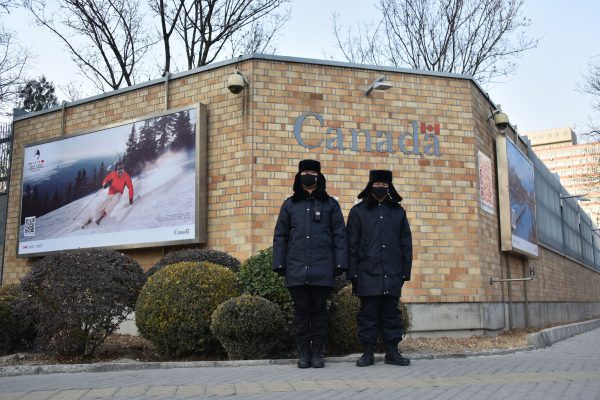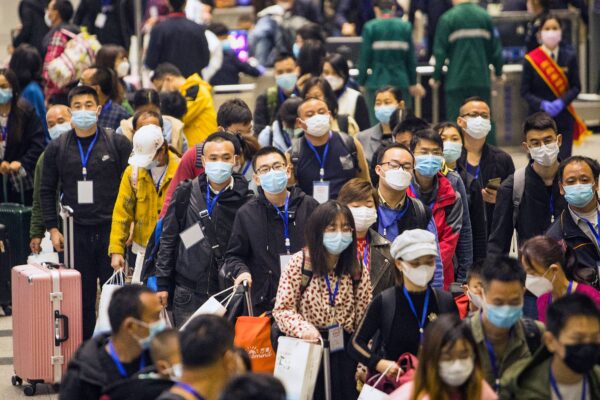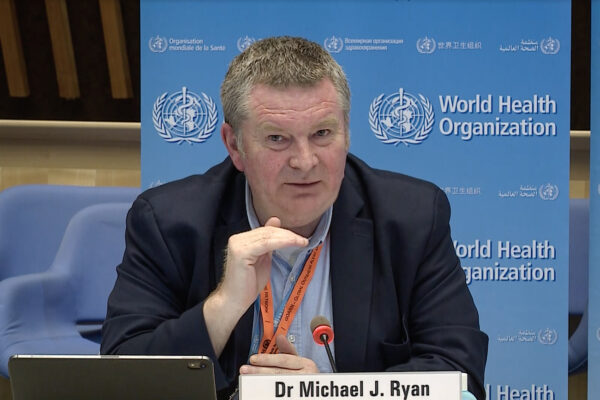U.S. and German embassies in China’s capital of Beijing announced on Dec. 15 the suspension of routine visa services due to the city’s COVID-19 outbreak that is also being seen in other large cities in China, following dozens of countries who have already suspended their visa applications in China.
Meanwhile, concerns have been rising that the COVID-19 outbreak in Beijing will spread to the countryside during travel for the Chinese new year in January.
The recent outbreak started before the communist regime lifted its “zero-COVID” restrictions last month, the World Heath Organization’s (WHO) emergencies chief noted.
Foreign Embassies and Visa Centers Suspend Services in China
The U.S. Embassy in China announced on Dec. 15 on its website that due to the surge in COVID infections across China, all routine visa services have been suspended except for some pre-scheduled visa services in the Shanghai Consulate. All regular appointments at the Beijing embassy and other Consulates General have been cancelled. The offices said that only passport and emergency citizen and consular services would continue to be provided.
The German embassy in Beijing also announced that due to the epidemic situation in Beijing, its consular office and visa office will be closed until Jan. 6, 2023.
German ambassador to China Patricia Flor expressed concern about the medical capacity of mainland China on Dec. 15, “We don’t know, are there enough intensive care unit (ICU) beds?”
She warned, “Nobody is really prepared, mentally, for this situation. So we cannot be excluded. There will be further disruptions here.”

More than a dozen countries had already closed their visa centers in China in late November.
VFS Global, authorized by many countries’ governments to provide visa services in China, temporarily closed their visa centers for some countries in Beijing from Nov. 22 until further notice. Those countries include: Austria, Canada, Croatia, Czech Republic, Estonia, Finland, Greece, Hungary, Italy, Latvia, Poland, Portugal, Slovenia, Iceland, Norway, Sweden, Switzerland, Ukraine, and others.
Concerns for COVID-19 Spread as Holidays Near
The Chinese lunar New Year, the biggest holiday in China, falls on Jan. 22, 2023, and the Chinese countryside expects massive influxes of people returning home as well as tourists as the holiday approaches. However, rural China has had little exposure to the various strains of the COVID-19 virus in the past three years, prompting concerns about a large wave of infections and deaths.

China’s national health commission said on Dec. 16 that it was ramping up vaccinations and stocking up on ventilators, essential medicines, and testing kits in rural areas. It is also advising Chinese new year travelers to reduce their contact with elderly relatives.
According to mainland Chinese media, Henan Province, with a large population whose majority are in the countryside, has announced that it has entered the first level of preparations for a spike in COVID-19 cases. Authorities have cancelled holiday leave for all employees in the health system in the province from now until the end of March next year.
Infections Exploding Long Before ‘Zero-COVID’ Policy Dropped

Michael Rhyne, the WHO emergencies chief, said at a press briefing on Dec. 14 that COVID-19 infections were exploding in China well before the Chinese regime abandoned its strict “zero-COVID” policy.
He said that there’s a false perception going around about China’s COVID-19 situation.
“There’s a narrative at the moment that China lifted the restrictions and all of a sudden the disease is out of control.”
He pointed out that the lifting of restriction in China is the not cause of the infection surge but a response to it, as it happened way before.
“The disease was spreading intensively because I believe the control measures in themselves were not stopping the disease,” he said. “And I believe China decided strategically that was not the best option anymore.”
From The Epoch Times

